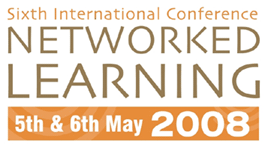

Students make a plan: ICT access and social and academic uses in higher education
Laura Czerniewicz, Cheryl Brown, Samantha Lee Pan, Alfred Moyo
Centre for Educational Technology, University of Cape Town, Laura.Czerniewicz@uct.ac.za
Abstract
This paper reports on the findings of ICT access issues and social and
academic uses in higher education, undertaken as part of a study in 2007
in three dissimilar South African higher education contexts. This diversity
provided insight into a highly differentiated student body, varied contexts,
different infrastructures and historically distinct backgrounds, thus
providing a rich data set. The study focused on forms of "thick"
access including both computers and cell phones.
The research instrument was a questionnaire filled in respectively over
a two-month period in 2007 by students three different South African universities
in three different provinces, one small, one medium and one large.
The study confirms that discussions about access to ICTs in higher educational settings need to be multi-faceted and acknowledge the complex interplays between student background, institutional context and the impact of broader social ICT related trends. In addition, access must be considered in relation to use, including factors such as the demands on users, user interests and purpose of use.
This study suggests that a broader access to technology or ICTs is emerging: computers, web services, cell phones now form a spectrum of access across the board in higher education. Furthermore, cell phones, labs and Internet Cafés offer possibilities across the socio economic spectrum and are certainly being used in interesting ways. That said, not all forms of ICTs are equal or equivalent, and considerations of cost, functionality and ease of use remain a crucial part of the access mix.
Significantly for medium-term planning is that on-campus provision of facilities remains a crucial equaliser and an important mechanism for ensuring fair and equivalent access for all students, even as other forms of access develop and become available beyond the institution. Offering lower cost or more cost effective cell phone and Internet Café access has yet to be offered as a central service.
The study finds that the use of technology for social purposes is not high, but that better-off students with good off-campus access use technology more for social purposes. Given that the social uses of technology require a "connected culture" one can assume that as more "connectedness" is enabled by both more advanced cell phones with better functionality, and increased and cheaper off-campus access, social uses will rise. The argument and the findings implied in this paper are that such uses are beneficial to academic use both by improving student ICT literacies in general, and because social uses feed into, support and overlap with academic uses. The rise of social use provides a useful indicator of the growth of relevant skills for students in an increasingly technology-mediated world.
At the same time, the findings suggest that the academic requirements
of the students are an important determinant of their behaviour even in
the most challenging of circumstances. Students meet their educational
obligations as best they can. They engage with technology in enterprising
ways, making thoughtful decisions based on the options at their disposal
both within and outside of the educational institutional context. This
in turn challenges the laggard or catch-up models of technology ICT given
that students from poorer backgrounds within especially challenging situations
find strategic solutions to their educational needs. A staged developmental
model does not neatly apply in rapidly changing developing country higher
education contexts. Our findings show that students make a plan, now academic
and policy makers - as a strategic response to changing conditions- need
also to make an intelligent plan.
| About NLC |
2008 Conference Papers
| Conference Committee| Keynote
Speakers
| Papers from previous NL conferences |Research Seminars| Current Conference
| Sponsors | Contact
|
